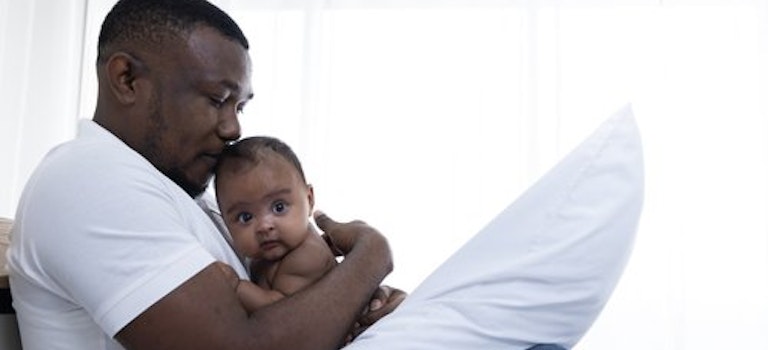Workshop: Parental Leave in the U.N. System – A Short Summary
To commemorate the Global Parent Day, the International Gender Champions (IGC) and U.N. Parents held a workshop on parental leave in the U.N. on 2 June 2022. The webinar brought together around 100 UN staff and non-staff alike and provided space to discuss parental leave in a safe and secure environment.
In 2020, the IGC launched the #ChampionsForParentalLeave campaign with U.N. Women to advocate for equal and sufficient parental leave for all parents. Champions who have supported the campaign in their individual capacity include Olof Skoog, Ambassador and Head of the Delegation of the European Union to the United Nations in New York and Dr. Khalid Koser, Executive Director of the Global Community Engagement and Resilience Fund (GCERF), among others.
Today, “U.N. Parents: Equal Rights Equal Roles”, an informal group of more than 500 staff across U.N. duty stations founded in 2021, is striving to reform the U.N. parental leave policy and advocate for more child-centred family policies across the U.N. system. To do so, they have developed 15 recommendations for consideration by the International Civil Service Commission (ICSC) as prerequisites for a fundamental change in the system.
Equal parenting at the U.N. – 15 Recommendations from U.N. Parents
1. Time dispensation for antenatal appointments
2. Pre-adoption and pre-surrogacy leave of four weeks
3. Pre-natal leave from four to six weeks prior to the due date for gestational parents
4. Leave for miscarriage and stillbirth for all parents
5. Access to twenty-four weeks of parental leave for all staff and non-staff
6. Mandatory leave period of eight weeks for both parents to encourage the participation of nongestational parents
7. Flexible parental leave arrangements within the first eighteen months after birth
8. Extended parental leave in the case of multiple births
9. Post-adoption or post-surrogacy leave of twenty-four weeks, equal to biological parents
10. Introduction of anti-discrimination policies
11. Time off to body feed, bottle feed or extract milk
12. Reimbursement of childcare costs during official travel
13. Paid family leave in case of sickness of a dependent child
14. Introduction of childcare allowance for children not yet attending mandatory education
15. Flexible working arrangements in favour of childcare and improved life-work balance
The event was opened by Ms. Monica Ferro, Director, UNFPA Geneva Office. Ms. Ferro stressed the importance and timeliness of the discussion. For the UN to be a real advocate for gender equality, more efforts are needed.
The interactive workshop on parental leave discussed the 15 recommendations U.N. Parents have developed in close collaboration with its partners for consideration by the International Civil Service Commission (ICSC) as prerequisites for a real change in the system.
In the following, participants were put into breakout groups to discuss the three parts of the U.N. Parents paper consisting of (i) pre-delivery, (ii) post-delivery and (iii) post-leave recommendations.
Participants mentioned that the U.N. needs to improve its parental policies, including for non-staff personnel, to improve gender equality and non-discrimination. Also, more complex topics such as financing new policies were discussed, and initial ideas on how new provisions could be funded were shared. Some participants mentioned that the recommendations should be further expanded and include, among other things, parents with disabilities and medical needs. Overall, participants agreed that this is just the start of an inclusive discussion that includes staff unions, H.R., senior management, and member states.
For more information on U.N. Parent’s Equal Rights, Equal Roles, please visit www.unparents.org

